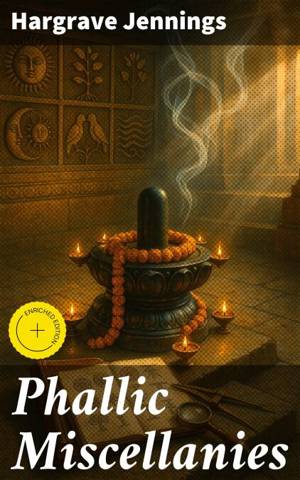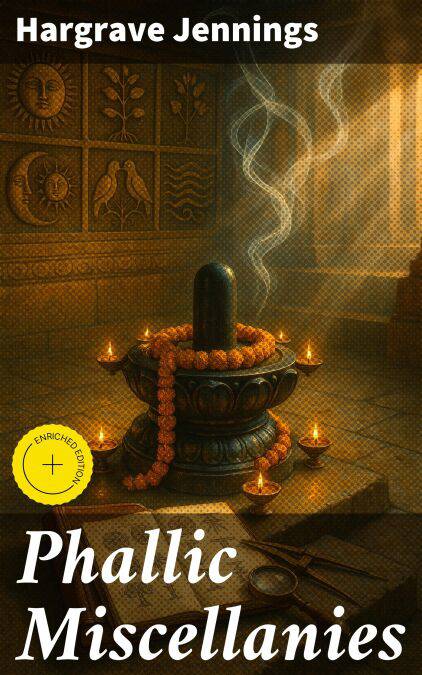
- Afhalen na 1 uur in een winkel met voorraad
- Gratis thuislevering in België vanaf € 30
- Ruim aanbod met 7 miljoen producten
- Afhalen na 1 uur in een winkel met voorraad
- Gratis thuislevering in België vanaf € 30
- Ruim aanbod met 7 miljoen producten
Zoeken
Phallic Miscellanies E-BOOK
Enriched edition. Facts and Phases of Ancient and Modern Sex Worship, as Illustrated Chiefly in the Religions of India
Hargrave Jennings
E-book | Engels
€ 1,99
+ 1 punten
Omschrijving
In "Phallic Miscellanies," Hargrave Jennings presents a provocative exploration of the representation of phallic symbols across various cultures and epochs. Employing a rich tapestry of historical, religious, and mythological contexts, Jennings delves into the significance of these symbols, illustrating how they represent fertility, power, and the human psyche. His literary style is characterized by an engaging blend of erudition and accessibility, which invites both seasoned scholars and general readers to confront the deeper implications of sexuality and symbolism in societal constructs. The book's eclectic range spans from ancient civilizations to contemporary interpretations, situating it within the broader framework of sexuality studies and symbolic anthropology. Hargrave Jennings, an English writer and mystic of the 19th century, was known for his fascination with esoteric subjects and symbols, which undoubtedly influenced his inquiry into the phallic motifs. Drawing from a wealth of sources, Jennings' writings reflect his commitment to understanding not only the historical significance but also the psychological dimensions of these symbols. His unique perspective emerged at a time when Victorian society was rife with repressive attitudes toward sexuality'—providing a counter-narrative to prevailing moral standards. "Phallic Miscellanies" is an essential read for anyone interested in the intersections of sexuality, culture, and symbolism. Jennings' thought-provoking arguments challenge readers to reassess their understanding of phallic representation in both historical and modern contexts. This work is an enlightening addition to the libraries of academics, students, and curious minds eager to explore the complex dimensions of human sexuality.
In this enriched edition, we have carefully created added value for your reading experience:
- Hand‐picked Memorable Quotes shine a spotlight on moments of literary brilliance.
- Interactive footnotes clarify unusual references, historical allusions, and archaic phrases for an effortless, more informed read.
In this enriched edition, we have carefully created added value for your reading experience:
- Hand‐picked Memorable Quotes shine a spotlight on moments of literary brilliance.
- Interactive footnotes clarify unusual references, historical allusions, and archaic phrases for an effortless, more informed read.
Specificaties
Betrokkenen
- Auteur(s):
- Uitgeverij:
Inhoud
- Aantal bladzijden:
- 195
- Taal:
- Engels
Eigenschappen
- Productcode (EAN):
- 4057664609359
- Verschijningsdatum:
- 26/11/2019
- Uitvoering:
- E-book
- Beveiligd met:
- Digital watermarking
- Formaat:
- ePub

Alleen bij Standaard Boekhandel
+ 1 punten op je klantenkaart van Standaard Boekhandel
Beoordelingen
We publiceren alleen reviews die voldoen aan de voorwaarden voor reviews. Bekijk onze voorwaarden voor reviews.







